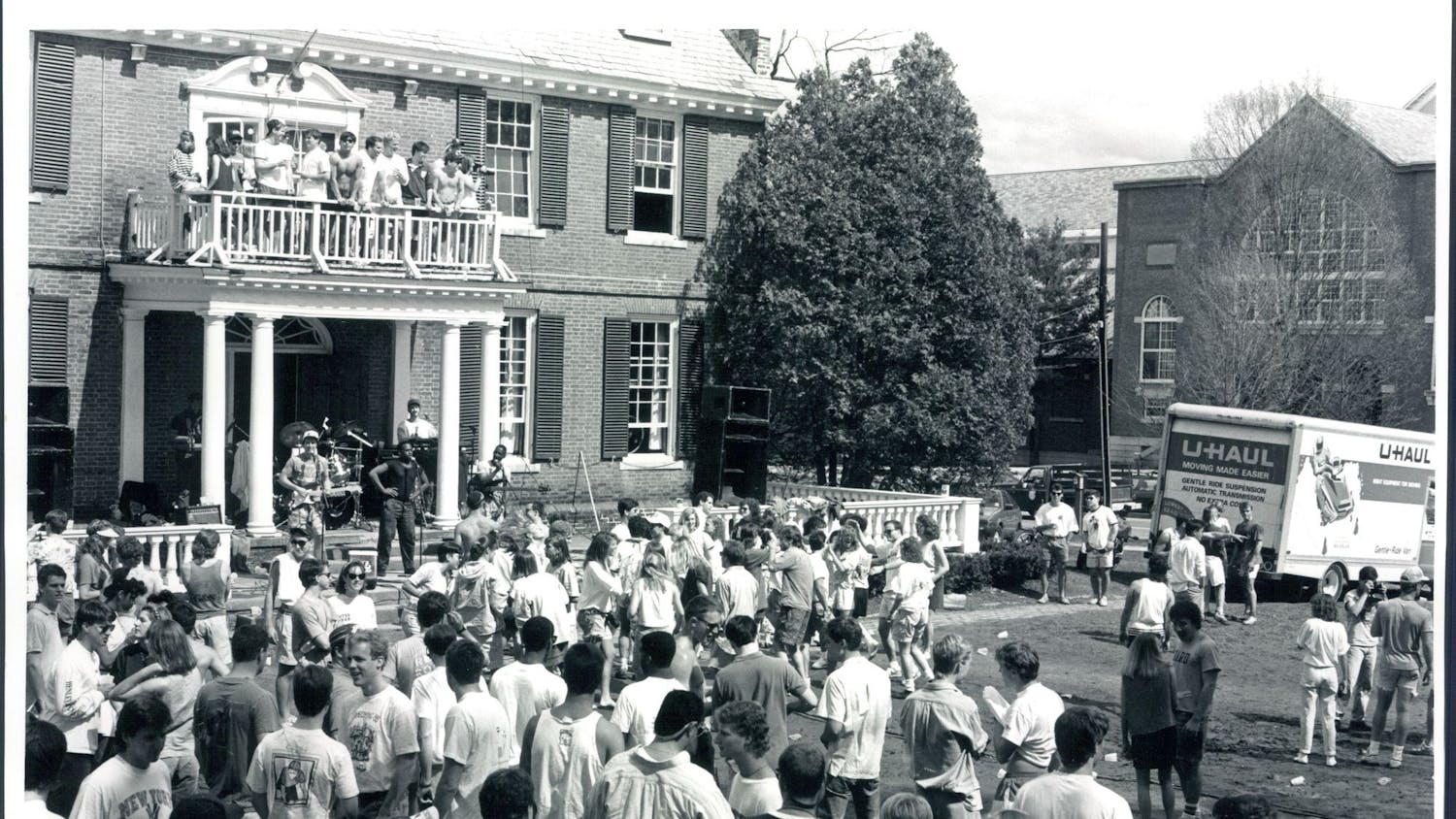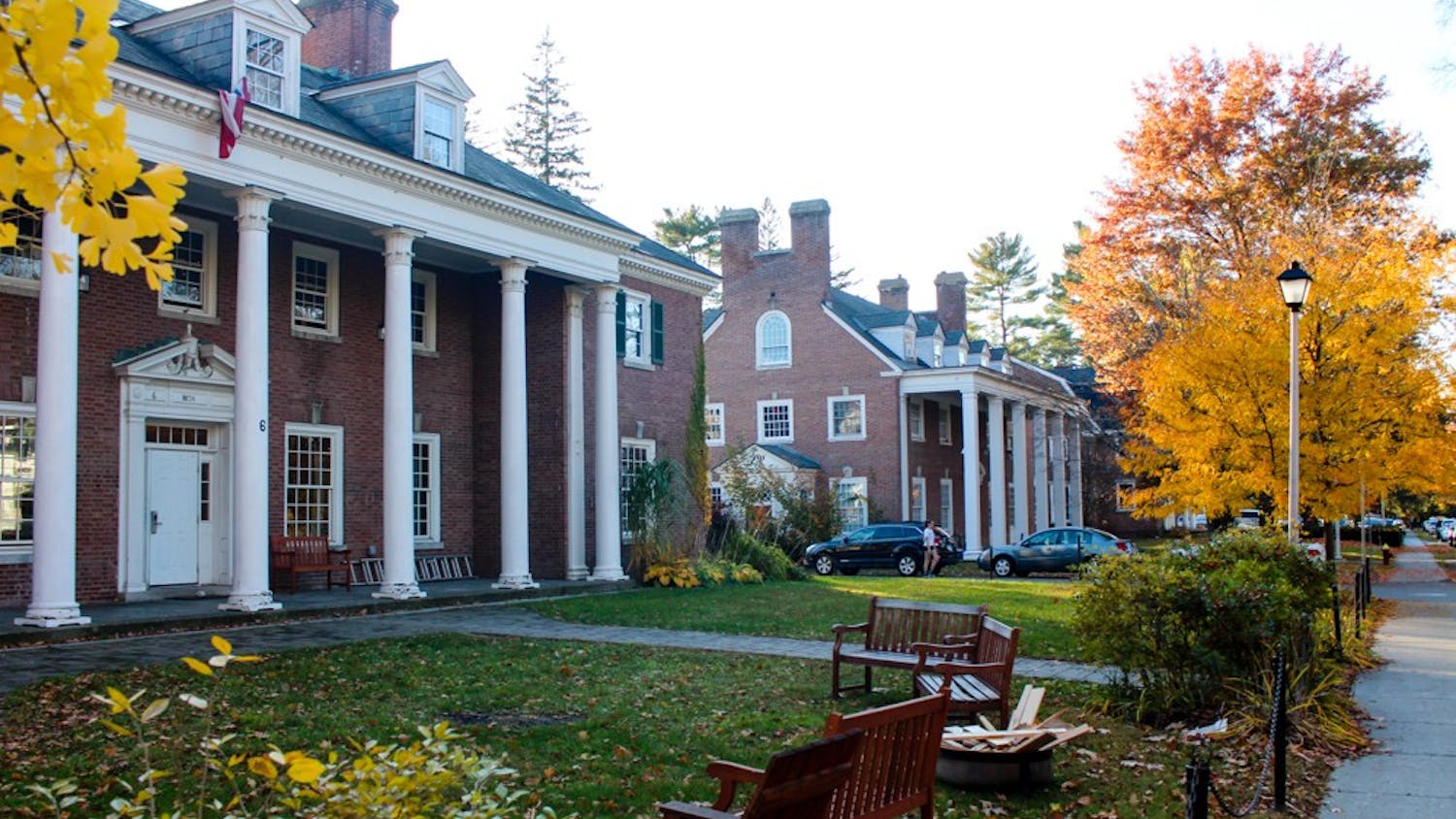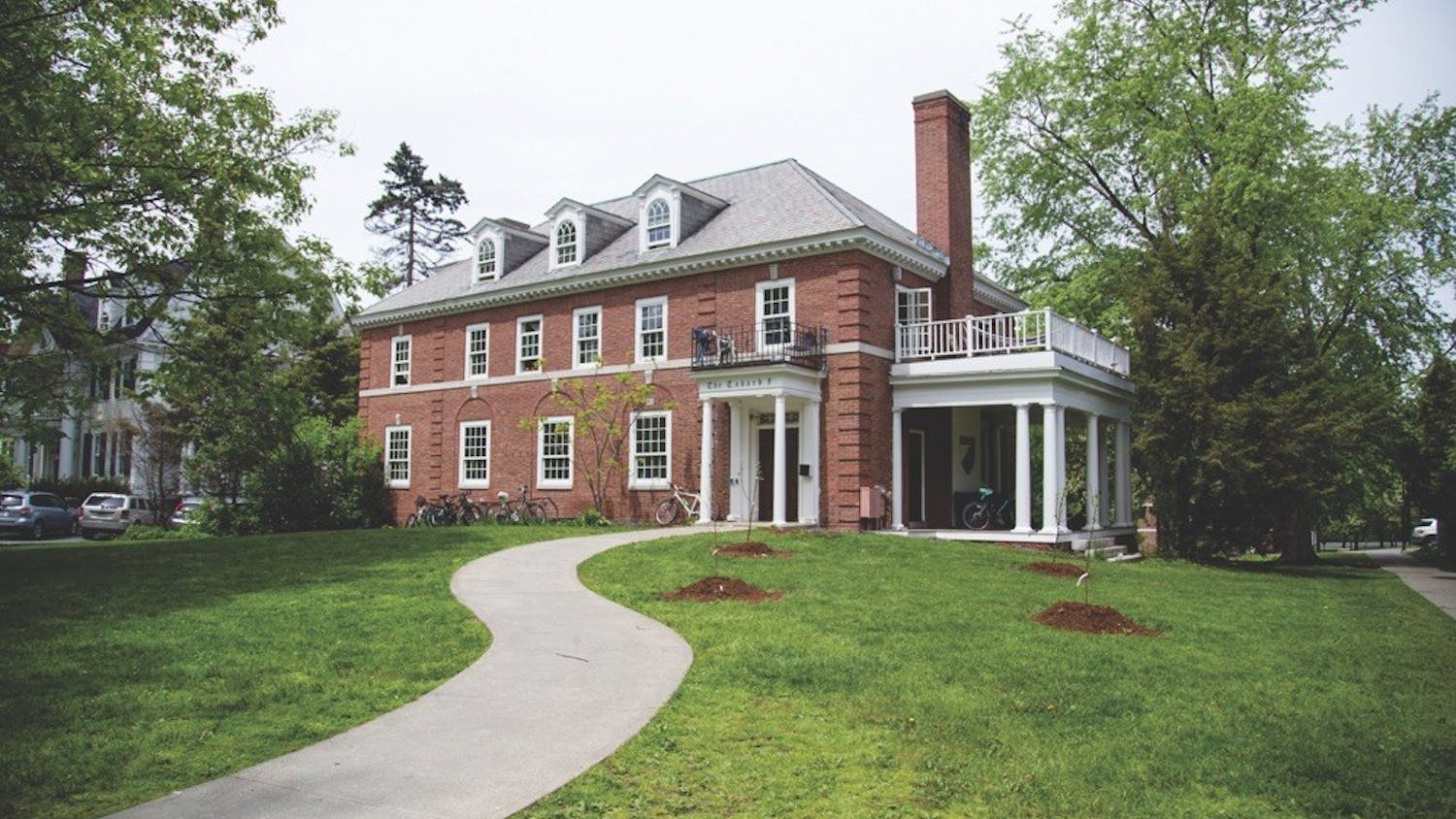This article is featured in the 2021 Winter Carnival special issue.
For some Dartmouth students, Greek life is as quintessential to campus culture as freezing New Hampshire winters and rigorous academics.
Greek life maintains a towering presence in Dartmouth’s social scene. Some students, like Olivia Gresham ’22 and Gus Guszkowski ’22, report feeling as if Greek life is Dartmouth’s social scene.
With over 60% of eligible students affiliated, there is an unspoken expectation that most students will eventually become a member of a fraternity, sorority or gender-inclusive Greek house. Though rush is voluntary and there are non-Greek social spaces on campus, students expressed that joining a Greek house can feel like a requirement for “fitting in” at Dartmouth.
“I think people come to Dartmouth and are scared that the only way to have a community is to join a Greek house,” said Guszkowski, who rushed and depledged from the gender-inclusive Greek house Alpha Theta.
Though Greek life offers positive connections and genuine support networks for some, for others, a house is not always a home.
Whether feeling alienated by social expectations like Gresham and Kaj Johnson ’22, or simply unable to take on the time commitment like Guszkowski, some students decide to become inactive or officially “depledge” from the Greek houses they rush.
For Gresham, depledging from Alpha Xi Delta sorority was driven by the realization that joining a house was not a prerequisite for the deep connections many students hope to make in college.
“I rushed because it was a big part of Dartmouth’s culture,” Gresham said, adding that she was relatively ambivalent about Greek life until she joined AXiD her sophomore fall.
“I didn’t anticipate it being my thing, but I thought I’d rather give it a shot and see if I liked it than have this lingering thought in the back of my head like, ‘You’re missing out, and all of your friends are doing this fun thing!’”
Gresham said that after spending freshman year settling into college life, sophomore year rush can shake up the rhythm of familiar relationships. As friend groups split into different affiliations, she said the fear of social isolation naturally finds its way into the back of sophomores’ minds. Gresham said she thought that Greek life would provide security and a social circle to fall back on as her freshman friendships grew and changed.
“I was a relatively active member in the fall,” Gresham said of her time in the sorority. “A lot of my friends had become affiliated at the same time, so they were off doing things with their houses and spending less time together. I thought I had to commit to something else just in case.”
The winter after she joined, a tough academic term prevented Gresham from fully engaging with the house. The remote spring term, which scattered students across the globe, put even more distance between Gresham and her sorority. By that point, however, Gresham said she had realized that her fear of growing isolated from freshman friends was unfounded; she remained close with her friends from other houses and felt at home among fellow staff at the Jack-O-Lantern.
With a strong social network already there to support her, the membership fees for a Greek house did not seem worth it, and she officially depledged last fall.
For Gresham, the opportunity to make deep connections in Greek life was partially undermined by the social expectations of affiliation and the “superficiality” of how different houses are judged and personified.
“I think a lot of the time sororities are painted as really empowering, female-oriented social spaces … but it didn’t feel empowering to me,” Gresham said. “There are big swaths of people on campus who really subscribe to the idea that some houses are the ‘cool houses’ and some are ‘mid-tier.’ That’s not a labeling system that I think is productive or important: I’d rather not have that judgment attached to me.”
The standards that Gresham encountered in the Greek system, where she said members are expected to behave according to notions of how people affiliated with a given house “should” behave, color the experiences of other students who depledge or drop rush.
Johnson, who began the fraternity rush process his sophomore year and dropped before bid night, recalled feeling alienated by the “locker room talk” tone of conversation that frequently appeared at pre-rush events.
“Even if you’re not talking about ‘getting with girls’ or trying to do something rambunctious, it manifests in the tone of voice and the vocabulary,” Johnson said. “It goes beyond stereotypes of just talking about football or whatever. They were talking about a lot of things, but I felt like I couldn’t truly be myself because it would just be taken as ‘he’s weird’ or ‘he’s gay.’”
Johnson described feeling the pressure that masculine behavioral expectations can put on expressions of queerness within the Greek system. Johnson said there were many points in the rush process when he felt torn between the desire to be part of a strong Greek community and the desire to be fully authentic.
“It felt like I was assimilating into a culture dominated by rush and hazing events that are gendered and to some degree sexualized,” he said.
After dropping rush, Johnson found a community in Panarchy, a gender-inclusive undergraduate society. Panarchy, once known as Phi Sigma Psi fraternity, became Dartmouth’s first coed Greek organization in 1972 and officially broke from the Greek system to become an undergraduate society in the early 1990s. According to Panarchy’s website, Phi Psi’s severance from the Greek system was precipitated by years of the house being “othered” for its status as a dry house and a hub for queer Dartmouth students.
Though Guszkowski still has a place in their heart for Alpha Theta, they depledged in hopes that being unaffiliated would lend them the time they needed to foster connections with both their former housemates and unaffiliated friends.
“When I initially dreamed of rushing my house, it was with a few of my closest friends because that was our go-to basement freshman year,” Guszkowski said. We all got along with people in the house, and the vibe was really cool and supportive. I loved it. When I officially joined the house though, I realized that only one other person I was friends with had rushed in that cycle.”
After their first house meeting, Guszkowski realized that they had underestimated the time commitment and responsibilities associated with being part of a Greek house. Between house maintenance, intense classes and taking on the demanding role of Romeo in the Dartmouth Rude Mechanicals’ production of “Romeo and Juliet” that term, Guszkowski found little time to make the deep social connections they craved, both at the house and outside of it.
“I started feeling isolated from my closest friends and wondered if I really wanted to be part of the house, or if I had just liked the parties and the people,” Guszkowski said.
Guszkowski officially depledged in order to personalize their social experience, making time for both their unaffiliated friends and for the house events they still enjoyed attending.
“Every step of the [depledging] process, everybody in the house was so kind and understanding.” Guszkowski said. “I did go to a couple more parties at the house after I depledged, and nobody there was weird about it.”
For Gresham, belonging is a feeling more personal and more complex than simply being “in” or “out.” Some of Gresham’s most fulfilling relationships were formed in club meetings, and she said she thinks making more physical space for students to bond over common interests and activities might strengthen feelings of security in non-Greek social circles.
“I think it would be cool if clubs had houses or spaces where people could live together and deepen the communities they’ve already formed,” Gresham said. She cited the Dartmouth Outing Club as an example of one such community, where students interested in nature have opportunities to get to know each other by attending feeds, hanging out in Robinson Hall and living together in off-campus spaces such as The Rock.
Gresham, Guszkowski and Johnson all expressed the hope that in the future, Dartmouth’s social scene will reflect more variety than a simple Greek/non-Greek dichotomy. Johnson said that though students may feel pressured to rush for fear of social isolation, communities across all corners of campus, unaffiliated and affiliated alike, deserve to be seen as legitimate social outlets.
“All of the good things about Dartmouth aren’t gate-kept by the Greek community,” Johnson said. “Performing groups, sports teams, clubs and undergraduate societies can be very tight-knit. You just have to get inventive and keep an open mind.”




